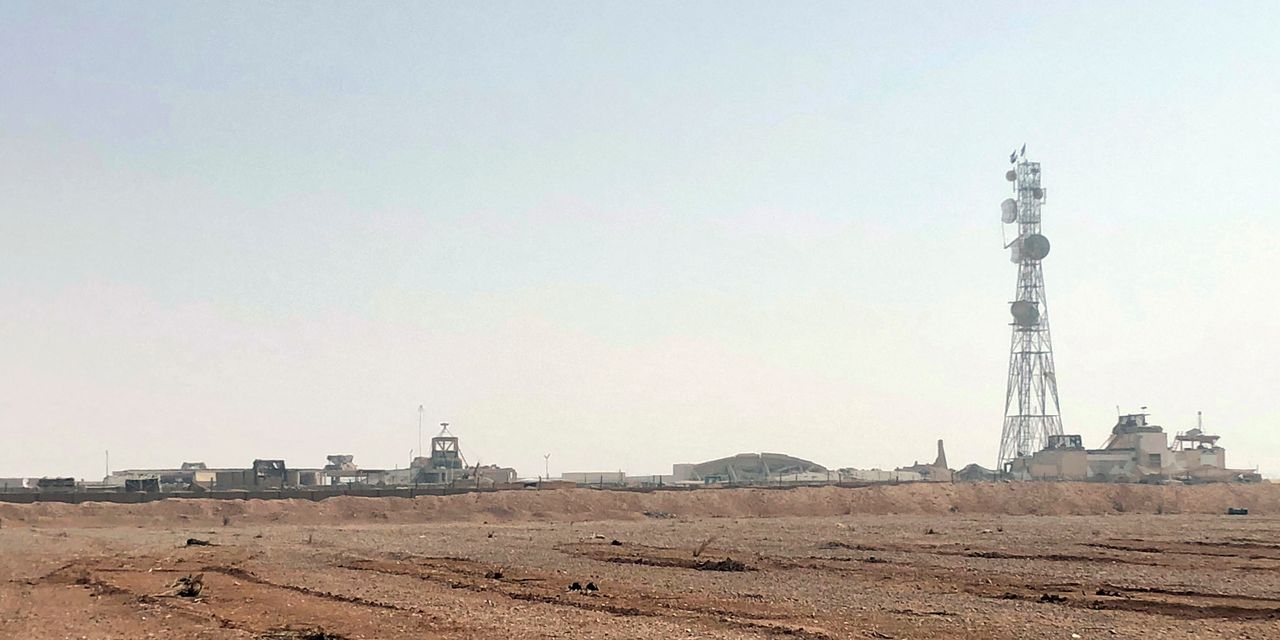Oil prices settled at their highest in a week on Friday, a day after marking their lowest finish in two weeks, as the situation in the Middle East intensified, raising the potential that the conflict will spread further into the oil-rich region.
News reports said U.S. warplanes bombed targets linked to Iran in eastern Syria, ratcheting up tensions in an already tense Middle East, while the Israeli army’s ground forces expanded its activities in the Gaza Strip.
Price action
-
West Texas Intermediate crude oil
CL00,
-0.44% CL.1,
-0.44%
for December rose $2.33, or 2.8%, to settle at $85.54 a barrel on the New York Mercantile Exchange. Prices for the front-month contract ended the week 2.9% lower. -
December Brent crude
BRN00,
-0.03% ,
the international benchmark, rose $2.55, or 2.9%, to settle at $90.48 a barrel on ICE Futures Europe, for a weekly loss of 1.8%. Brent and WTI crude both settled Friday at their highest since Oct. 20 after ending Thursday at their lowest since Oct. 12. -
November gasoline
RBX23,
+0.12%
rose 2.5% to $2.31 per gallon, posting a weekly decline of 2.6%, while November heating oil
HOX23,
-0.47%
added 0.3% to $3.05 a gallon, losing 3.3% for the week. -
November natural gas
NGX23
shed 1.6% to end at $3.16 per million British thermal units on the contract’s expiration day, with prices holding onto a gain of 9.1% for the week.
Market drivers
Traders “must and should be focused on one thing, and that is the ground invasion of the Israeli army into Palestine,” Naeem Aslam, chief investment officer at Zaye Capital Markets, told MarketWatch. “This is going to take anger to a different level among Arab nations.”
Arab leaders are “already angry about the U.S. involvement in the current boycott of the Israeli government in Palestine, and now the U.S. warships are targeting Syria,” he said.
All of this represents “significant risk to oil prices,” which traded lower for the week as traders are “being ignorant of the above and chances are higher that they will be caught off guard,” said Aslam.
U.S. warplanes on Friday struck two locations in eastern Syria, which the Pentagon said is linked to Iran’s Revolutionary Guard Corps, following a string of attacks on U.S. air bases in the region that started last week.
The Pentagon claims 19 attacks in total across U.S. bases and personnel in Iraq and Syria since Oct. 17, a number that includes three fresh attacks on Thursday.
Also see: U.S. is set to play tug of war with OPEC+ for oil market share as Middle East hostilities warrant output boost
On Friday, Israel’s military said it was “expanding” its ground operations in the Gaza Strip.
Early Friday, however, Phil Flynn, senior market analyst at The Price Futures Group, said oil prices fell from session highs after Al Jazeera, citing sources, reported that negotiations on an Israel-Hamas ceasefire, mediated by Qatar, were “progressing and at an advance stage.”
For now, prices continue to find support with traders wary of the Israel-Gaza war spreading further and possibly end up involving crude producer Iran.
“The country ramped up its daily oil production by around 500,000 barrels in the first half of the year, which according to the IEA means it is set to make the second-biggest contribution to the growth in oil. As such, Iran is again accounting for a good 10% of OPEC output,” said Barbara Lambrecht, commodity analyst at Commerzbank, in a note to clients.
Read: 4 reasons why oil prices have only seen a modest Middle East risk premium
For the week, however, oil prices posted declines.
“Traders are focused on physical supply and demand, and aren’t swayed by rhetoric until they convert into physical supply disruptions,” said Manish Raj, managing director at Velandera Energy Partners.
“Oil traders have heard too much of war sirens that hearing another one does not make them seek shelter anymore,” he told MarketWatch. “Short of a widespread war, geopolitical posturing is falling on deaf ears and traders aren’t giving it much credence.”
Still, despite the recent price decline, oil prices are “healthy and these are still good times in the oil patch,” said Raj.
Read the full article here



 Offers free spin
Offers free spin